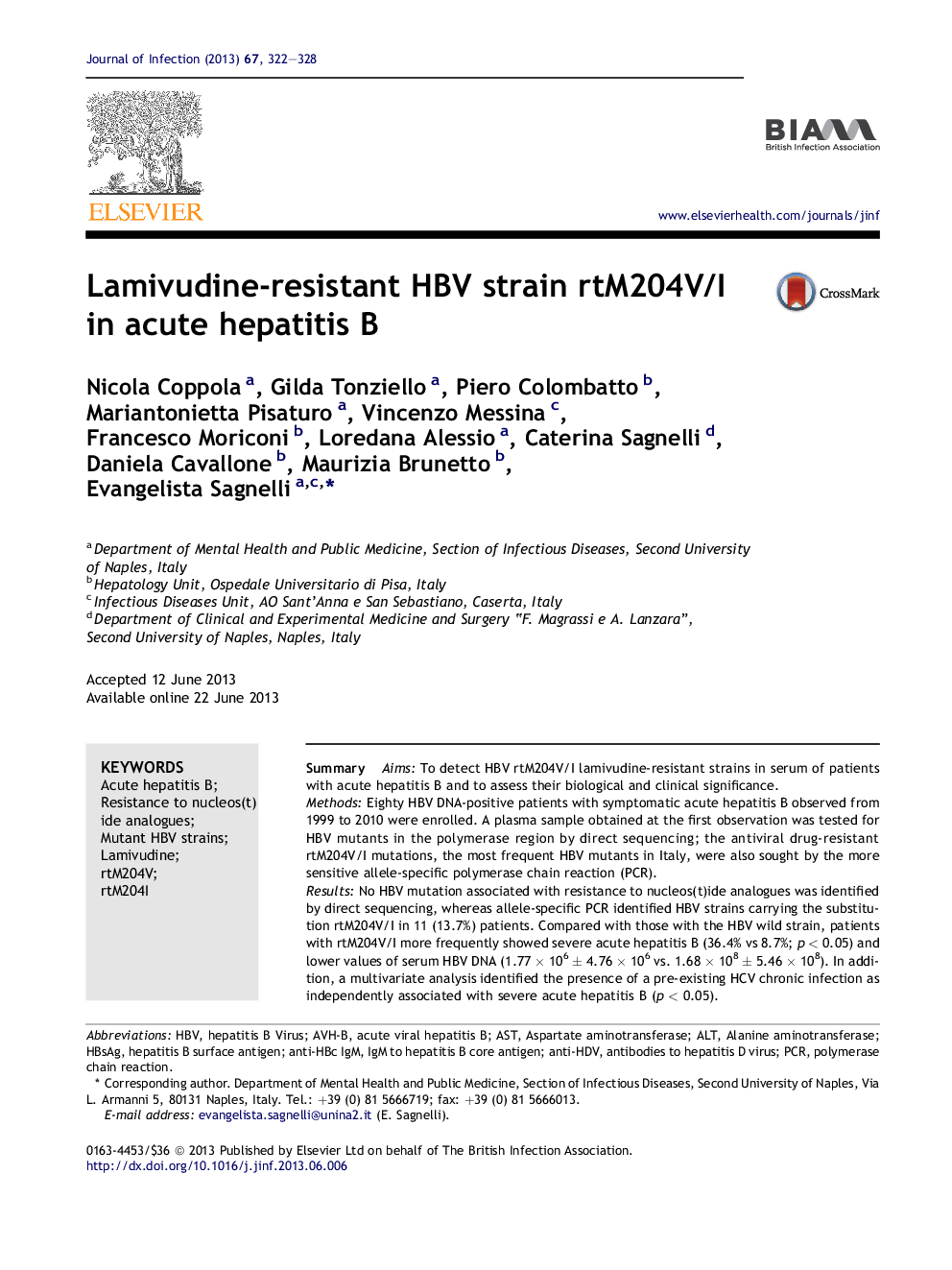| Article ID | Journal | Published Year | Pages | File Type |
|---|---|---|---|---|
| 3374925 | Journal of Infection | 2013 | 7 Pages |
SummaryAimsTo detect HBV rtM204V/I lamivudine-resistant strains in serum of patients with acute hepatitis B and to assess their biological and clinical significance.MethodsEighty HBV DNA-positive patients with symptomatic acute hepatitis B observed from 1999 to 2010 were enrolled. A plasma sample obtained at the first observation was tested for HBV mutants in the polymerase region by direct sequencing; the antiviral drug-resistant rtM204V/I mutations, the most frequent HBV mutants in Italy, were also sought by the more sensitive allele-specific polymerase chain reaction (PCR).ResultsNo HBV mutation associated with resistance to nucleos(t)ide analogues was identified by direct sequencing, whereas allele-specific PCR identified HBV strains carrying the substitution rtM204V/I in 11 (13.7%) patients. Compared with those with the HBV wild strain, patients with rtM204V/I more frequently showed severe acute hepatitis B (36.4% vs 8.7%; p < 0.05) and lower values of serum HBV DNA (1.77 × 106 ± 4.76 × 106 vs. 1.68 × 108 ± 5.46 × 108). In addition, a multivariate analysis identified the presence of a pre-existing HCV chronic infection as independently associated with severe acute hepatitis B (p < 0.05).ConclusionsHBV rtM204V/I lamivudine-resistant strains were detected in serum of 11 (13.7%) patients with acute hepatitis B by allele-specific polymerase chain reaction. The frequent association of rtM204V/I with a more severe acute hepatitis B and with a lower viral load may suggest that greater and/or more prolonged immune pressure might have induced their selection.
